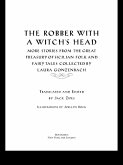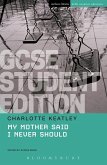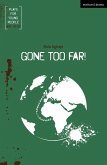This warm and gripping story of fear and forgiveness is the first major play in twenty years from Charlotte Keatley, the award-winning author of My Mother Said I Never Should. This beautifully immersive and yet also elusive new play is a subtle and compassionate piece, with real humanity of characterisation and a firmly-evoked sense of place.
A young woman on the eve of her 30th birthday returns to her parents' home in the sweeping hills of the Peak District. But the house is full of memories, and down by the reservoir she hears a voice from a drowned village. In time, every secret must come to the surface.
Keatley's atmospheric writing creates a palimpsest of the past which cleverly yet evocatively leaks into the present. She presents a clear continuity of wrongs repeating themselves and the damage they wreak lasting across centuries and generations. An impressively accomplished piece, Our Father's sustained atmosphere and strong characterisation connects with Keatley's trademark dreamlike sequences which defy a linear chronological structure. Reflecting how the past continually interrupts the present, the time device is fundamental to the play's meaning as well as its psychological themes of guilt, evasions, resentments and eventual revelation of secrets.
A young woman on the eve of her 30th birthday returns to her parents' home in the sweeping hills of the Peak District. But the house is full of memories, and down by the reservoir she hears a voice from a drowned village. In time, every secret must come to the surface.
Keatley's atmospheric writing creates a palimpsest of the past which cleverly yet evocatively leaks into the present. She presents a clear continuity of wrongs repeating themselves and the damage they wreak lasting across centuries and generations. An impressively accomplished piece, Our Father's sustained atmosphere and strong characterisation connects with Keatley's trademark dreamlike sequences which defy a linear chronological structure. Reflecting how the past continually interrupts the present, the time device is fundamental to the play's meaning as well as its psychological themes of guilt, evasions, resentments and eventual revelation of secrets.









